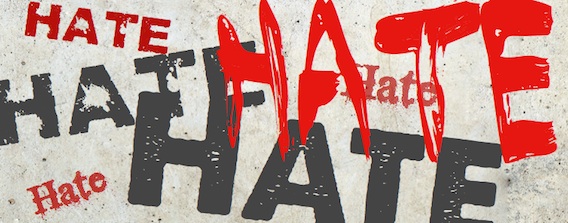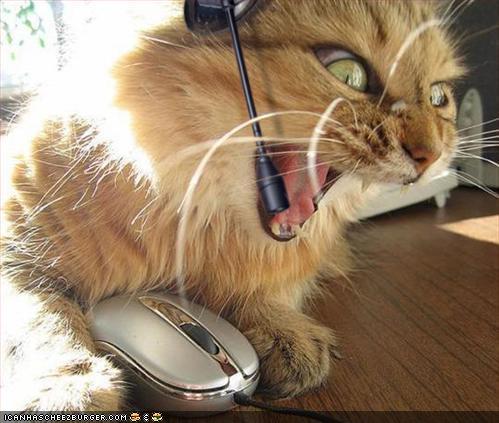
Stop the Hate (Gamers)
In 2002 the world was introduced to Friendster, with MySpace soon to follow, but it was Facebook launching in 2004 and Twitter in 2006 that truly solidified the power of social media. These platforms have sparked millions of people to become more vocal of their ideals and opinions, and this in turn is shaping traditional business models and enforcing accountability for what people say in public. Sadly this social platform also has its negatives; an ugly side I wish the gaming community would do its best to change.
“We need to stop letting hate define us,” said Destructoid contributor Brett Makedonski not too long ago. We should stop berating EA, claiming they’re the worst company in America (again), and instead acknowledge the amazing IP’s the company has brought to the table. We should have toned down our anger over the Sim City debacle – if Diablo III’s Error 37 was any indication of how much the game would actually sell. Brett was inspired by a piece from Fall Out Boy’s lead singer Patrick Stump, who described the hate environment of pop culture. The same way mentioning Nickelback cues a barrage of insults, even uttering EA induces hisses and groans. Unfortunately this is just touching the surface of how the gaming community reacts to matters we don’t like, and it’s that strong reaction that paints gamers in a negative light and stops us from being seen as anything more than rabid children.
If there’s a pundit on Fox News claiming something as ridiculous as, “the increase in rapes can be attributed in large part to the playing out of [sexual] scenes in video games,” their products are sure to have hundreds of negative reviews within a few days. Make a public statement that video games are bad for our children? Threats are sure to be in your inbox by noon. Has a game developer you admire tweeted something that offended you? Then the solution is to constantly tweet them until they apologize, even if this means tweeting them days later after the incident. There are so many examples of how aggressive the community can be when we feel threatened, and this needs to end. Threats, review bombs, and harassment hinders intellectual discussion, and just becomes another reason people with a higher platform (generally Fox and government officials) become outspoken about the video game culture.
You’re proving them right.
Cooper Lawrence is known for her SE-XBOX Mass Effect Fox News debut in 2008, where she argued with Geoff Keighly on whether or not Mass Effect was a sex emulator that has the potential to influence the psyche of young boys. Soon after her appearance, she started receiving nasty e-mails and her newest book on Amazon is sitting at a pretty 178 1-star reviews. Carole Lieberman, the psychiatrist who made the rape statement above, received similar treatment in 2011, with 135 1-star reviews sitting on her last book Bad Girls: Why Men Love Them & How Good Girls Can Learn Their Secrets. Cooper Lawrence has since recanted what she said on public television, acknowledging that she was misinformed on the game itself and that she was coached before her on-air appearance (a tactic Fox News has used before). The 1-star reviews she received in retialation to her appearance were probably the triggerprompting her recant, but that just makes her apology all the less sincere. And all those reviews are still there years later, a prime example of how the gaming community reacts to negative press.
The same can be said for Carole Lieberman. She was approached for separate interviews to explain her statement, and she failed to deliver any proof to back-up her claims. However, what she did provide was examples of the type of harrassing e-mails you was receiving on a daily basis after the article went live:
“I played Bulletstorm demo, and like I felt I need to rape someone. So I went into this kind of deep trance, which caused me to rape 10, 15 years-old girl. [sic] What do I do now? The game made me do it. Please help me. By the way, you look like a fucking deadbeat pornstar. Yours truly, JohnnyMassiveHomoCunt OMG LOL my shift broke. P.S. Playing Mass Effect gave me a sudden need to shoot you in the head. Would you please come here so I can fulfill my needs?”
Dr. Lieberman made a comment that perfectly summed up my concern with these types of retaliations, “The irony is here are people trying to say video games don’t cause people to be violent, but the ones I’ve read are very violent. They’re out of control.”
I understand the passion to want to stop the spreading of misleading information, as it’s harmful to the medium and those who enjoy video games, especially when this erroneous data is presented on a platform like television with such a wide audience unfamiliar with our culture. However, these backlashes cause more harm than good, and it becomes more detrimental when we begin attacking our own people in the industry.
When Anita Sarkeesian started her Kickstarter campaign for “Tropes vs. Women in Video Games,” she never expected the type of reaction she encountered from her initiatives. Hateful remarks and threats littered the page. The other side of the industry that believed in her cause and wanted to send a message to those rallying against her backed up her campaign in full force, so much so that she earned over $150,000 more than she needed for her project. In the months that followed, before her first video was even uploaded, Sarkeesian continued to suffer from cyberbullying. She was attacked for being Jewish, any males who spoke up for her were labeled as gay, her social media accounts were subject to hack attempts, and her website was bombarded by DDOS attacks. She had to delete her gamertags and photos of her friends and family from the internet to protect herself. Even worse, a game was created to beat up a picture of her to a bloody pulp, the last ugly result of an unnecessary attack on someone’s character.
I comprehend some of the apprehension to Sarkeesian’s efforts. There are those who believe she is biased in her feminist approach to iluminating sexism in movies and television, as her previous videos have neglected to include information that would otherwise refute some of her claims. This is a logical objection. Then there’s those who are threatened by someone trying to enlighten the public on the sexism present in video games today, because it’s badmouthing a world gamers hold dear. But the harrassment Sarkeesian has been subjected to is by no means okay, and just serves as a reminder that we need to evaluate our knee-jerk reactions. With the first video in the series out titled “Damsels in Distress” Saarkesian actually disabled the comments and rating system on YouTube to prevent further harassment, which instead prevents further discussion on any points she brings up in the video, but is completely understandable when looking at what she’s had to go through. A Destructoid community member made a video of his own to illustrate how he believes Anita got some things wrong and thus painted a one-sided bias argument.
This is exactly how you should go about it. Discussion > hate speech.
Treading our way back to reviews, we have many instances of customer wrath as well. Mass Effect 3 was a subject in the news for months after the game released, and consumers made sure to let Bioware know how they felt about the game’s ending… on Metacritic, on their social media pages, even to their doorstep. Going back a few years, we also have Spore, the brainchild of Sim City‘s Will Wright. Standing as one of the most anticipated games of 2008, people were stunned to find DRM plaguing their game upon purchase. Players were outraged that they were required to be online to activate the game and were restricted to three installations max. Til this day Spore still has a jarring number of 1star Amazon reviews, something Sim City is now experiencing.
Finally, if this all wasn’t disheartening enough, we turn on ourselves. When a fellow gamer expresses personal stories in relation to video games, they are sharing because they hope to be embraced by like-minded individuals who will understand what he or she went through and how video games have helped them achieve a better understanding of themselves. What they don’t, and shouldn’t, expect is people’s disinterest and cruelty. Kotaku was nice enough to run a feature on a boy who suffered from depression who found strength in his childhood playing as Lara Croft. With the new Tomb Raider he felt even more at home, he grew alongside Lara in her struggles. It was a wonderful piece on overcoming personal obstacles through an interactive medium, and yet the comments literring the article were hateful. The comment that sticks with me the most, “And not a single f*** was given.”
Unbelievable.
Brendan Sinclair wrote an excellent piece on why we react the way we do, and I hope by embracing the true reasons behind our gut reactions, we can move forward to better address the issues we don’t like. It’s okay to be angry; we’re a passionate bunch. For those of us who read Joystiq on a daily basis and listen to GiantBomb podcasts, we love vidya games and will do our best to protect its integrity. But we also have to remember that it’s a double-edged sword: we can’t protect what we love by telling someone they should die and then expect them to show us some respect.
The world doesn’t work that way, and we sometimes forget the internet isn’t separate from reality.








